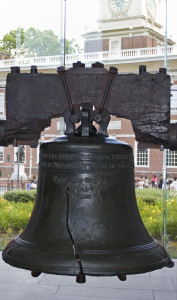For this month’s focus, we decided to showcase Pennsylvania as I recently came back from the AFWA National Conference held in Pittsburgh. One of the original colonies, the state has had a head start on others in terms of innovation and community development. The first baseball stadium, the first daily newspaper, the first computer and the first American flag were all built or created in Pennsylvania. If you love history, Pennsylvania should be one of your must-see destinations.
Business Climate
Pennsylvania lives up to its nickname the “Keystone State.” It has an abundance of natural resources, medical and educational institutions that it uses to its advantage. Pennsylvania is the second-largest natural gas electricity producer. The State also boasts a bountiful production in its agriculture. It had more than $2 billion in agricultural commodities in 2014 and its food manufacturing industry is quickly growing. The state is home to top-caliber educational institutions such as University of Pennsylvania, Carnegie Mellon University, Lehigh University, and Pennsylvania State University; all of which supply the state with a skilled workforce.
Despite the local graduate pool that benefits businesses, the state is projected to have one of the slowest population growths in the nation. Another disadvantage to doing business in the state are the high taxes. Business are reluctant to relocate or start their business in the state due to high costs associated with it.
Tax Climate
According to the Tax Foundation’s 2015 State Business Tax Climate Index, Pennsylvania ranks 34th out of 50. The State imposes a flat rate of 9.99% in corporate income tax, which is the 2nd highest among states that levy this type of tax. Pennsylvania’s state and local corporate income tax collections per person were $148 in 2012 which ranked 14th highest nationally.
Pennsylvania’s personal income tax rate on the other hand is 8th lowest among all states. The State has a personal income tax rate of 3.07%. Pennsylvania’s state and local income tax collections per person were $1,122 in 2012 which ranked 14th highest nationally.
Tax Credits & Incentives
Job Creation Tax Credit (JCTC): This tax credit program provides approved businesses income tax credits of $1,000 per year for every newly created job. Beginning July 2, 2013, the tax credit amount increases to $2,500 if the individual was previously unemployed. This tax credit applies within a three year period.
- To qualify, companies must create at least 25 new jobs or expand the existing workforce by at least 20%. Credits are non-refundable, and can be carried forward five years.
- Twenty-five percent of the tax credits allocated each year must go to businesses with less than 100 employees.
- Applications must be submitted online by accessing esa.dced.state.pa.us.
Keystone Innovation Zone (KIZ): The KIZ incentive program aims to assist young companies to transition through different stages of their growth. This program provides tax credits to for-profit companies less than eight years old operating in specific targeted industries within the geographic boundaries of a Keystone Innovation Zone. There are $25 million in tax credits available to KIZ companies annually and applications must be submitted on or before September 15 of each year.
- Tax credits must be applied against the tax liability of a KIZ company for the tax year in which the KIZ Tax Credit was issued. Unused KIZ Tax Credits may be carried forward up to five years from date the KIZ Tax Credit is issued or may be reassigned/sold to another taxpayer.
- A KIZ company may claim a tax credit equal to 50% of the increase in the Company’s gross revenues in the immediately preceding taxable year attributable to activities in the KIZ, as well as the second preceding taxable year. The KIZ Tax Credit is limited to $100,000 annually per company.
- Click here for a full map of the KIZ and contact information of each zone’s KIZ Coordinators.
Keystone Opportunity Zone (KOZ): This program applies to businesses in designated zones in underdeveloped and under-utilized areas. The KOZ program eliminates specific state and local taxes depending on each business’s circumstance. The tax burden may be reduced to zero. The length of tax relief also varies in different zones. To view the full map of the KOZ and contact information of the coordination offices, click here.
- Pennsylvania businesses relocating to a KOZ must either: Increase their full-time employment by 20% within the first full year of operation, or make a 10% capital investment in the KOZ property based on their prior year’s gross revenues. Eligibility for benefits is based upon annual certification. In order to receive benefits, any entity applying must be compliant with all local and state taxes and building and zoning codes.
Random Facts
- Named by Governor William Penn after his arrival in the New World in 1682, Philadelphia combined the Greek words for love (phileo) and brother (adelphos), engendering its nickname of “the city of brotherly love.”
- Now the largest city in Pennsylvania, Philadelphia served as the nation’s capital from 1790 until a permanent capital was established in Washington, D.C., in 1800. Both the Declaration of Independence and the U.S. Constitution were signed in Philadelphia.
- In July of 1952, Jonas Salk developed the first polio vaccine from the killed virus at the University of Pittsburgh. First tested on himself and his family, the vaccine was made available nation-wide a few years later, which reduced the number of polio cases from nearly 29,000 in 1955 to less than 6,000 in 1957.
- The first complete Tyrannosaurus Rex skeleton can be found in the Carnegie Museum in Pittsburgh.
- The Philadelphia Eagles and the Pittsburgh Steelers merged to form the Steagles for one season in 1943. The teams merged because both lost so many players to military service during WWII.














